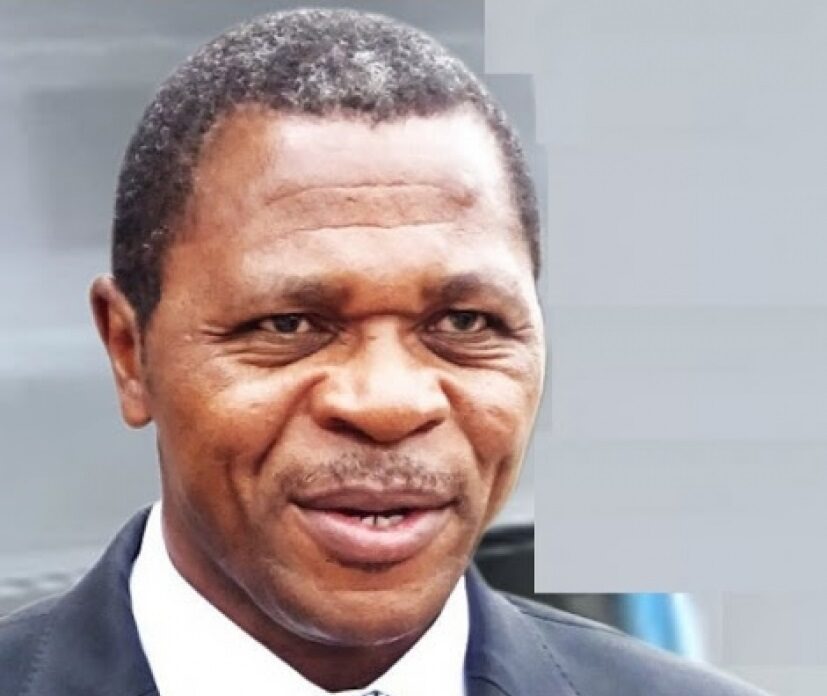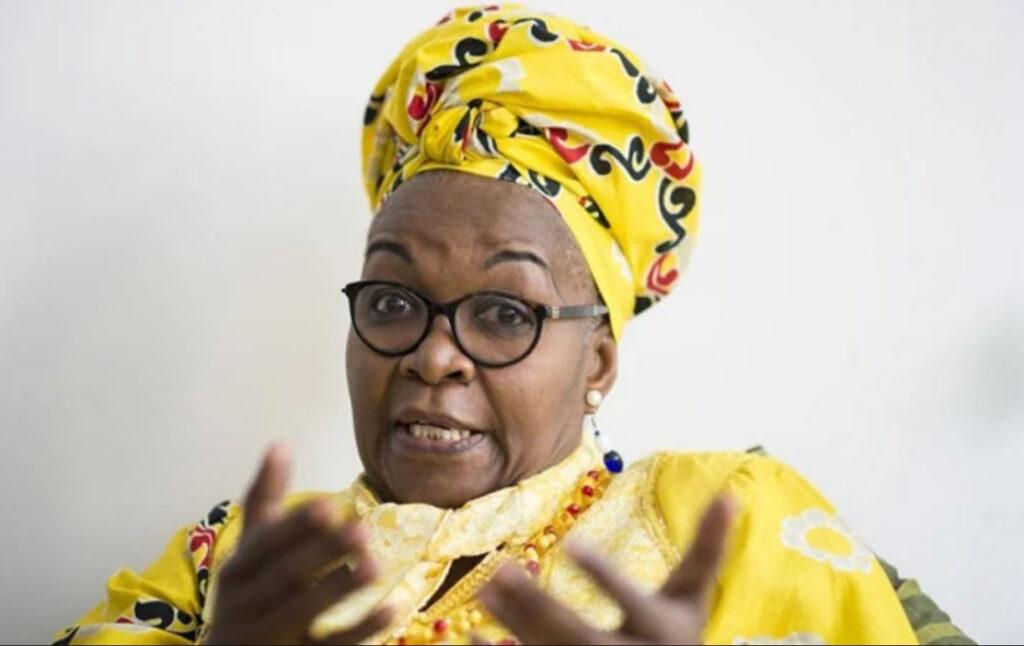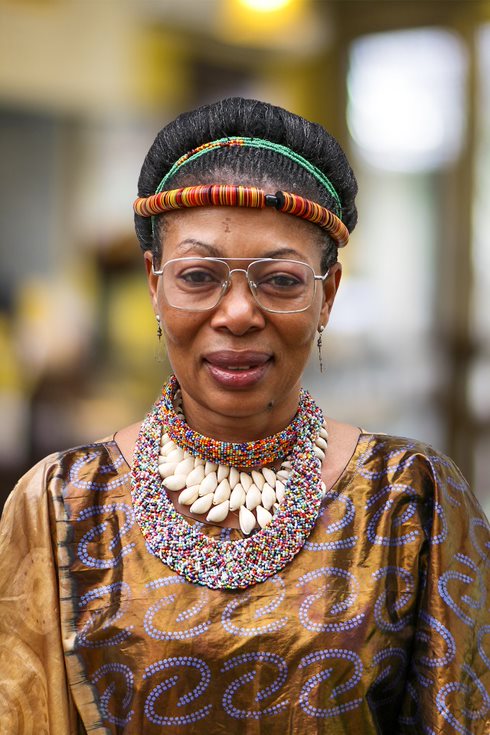
Paul Atanga Nji, Cameroon’s Minister of Territorial Administration
Cameroon has ordered the suspension of four non-governmental organizations (NGOs) for alleged financial misconduct, including the LGBTI-friendly Network of Human Rights Defenders in Central Africa (REDHAC).
REDHAC rejected the legitimacy of the suspension.
Attorney Alice Nkom, who is a prominent defender of LGBTI people’s rights as well as president of the REDHAC board, broke the seals that the government had placed on REDHAC offices, LeBledParle.com reported. She said that the government failed to comply with the necessary procedures for suspending an organization, which were established by law in 1990.

LGBT rights defender Alice Nikom of Cameroon (Photo courtesy of Actu Cameroun)
Paul Atanga Nji, Minister of Territorial Administration, ordered the suspensions on Dec. 6, accusing the organizations of dubious financial practices such as illegal financial schemes, failure to transparently account for the origin and use of their funds, and the absence of administrative authorizations required to carry out their activities on Cameroonian territory. In addition to REDHAC, he ordered the suspension of Reach Out Cameroon, Nanje Foundation INC and the Association Charitable Socioculturelle (ACS).
He said the action came after in-depth investigations by the National Agency for the Fight against Financial Crime (ANIF) and other regulatory bodies. Atanga claimed that the uncovered irregular financial activities amounted to approximately 16 billion CFA francs (more than U.S. $25 million) over the past two years.
The Ministry of Territorial Administration instructed regional governors and departmental prefects to enforce the suspension and continuously monitor NGOs operating in their jurisdictions.
In a follow-up press conference on Dec. 17, Atanga said the sanctions will not be lifted until the suspended organizations are brought into compliance with the law.
The International Federation for Human Rights (FIDH) and allied organizations called REDHAC a “key partner of civil society in the promotion and protection of human rights in Central Africa”. It described Atanga’s action — taken without presenting evidence of irregularities — as a “clear attack on freedom of association” and urged Cameroonian authorities to immediately revoke the order and put an end to the harassment of civil society organizations in the country.
Nkom and Maximilenne Ngo Mbe, the executive director of REDHAC, have been summoned by the prefect of Wouri. FIDH reported that five other members of REDHAC have also been summoned to the Central Police Station in Douala. “These summonses, addressed to leaders and staff of the organization, aim to intimidate them and prevent them from exercising the remedies recognized by law to restore REDHAC’s rights,” FIDH stated.
LGBTI rights advocacy organizations in Cameroon are concerned about how they will be affected by Atanga’s demands for rigorous accounting. Atanga made it clear that organizations are expected to submit regular activity reports to his ministry and to present a transparent account of the sources and uses of their funds.
LGBTI rights groups, which also campaign against HIV, have the additional burden of accurately describing their mission without inciting homophobic opposition. Because of Cameroon’s law against homosexual activity, they typically emphasize their efforts to protect vulnerable populations against HIV rather than their advocacy of LGBTI rights.
This is the statement in support of REDHAC from The Observatory for the Protection of Human Rights Defenders, which is a partnership between the World Organization Against Torture (OMCT) and the International Federation for Human Rights (FIDH):
Cameroon: Arbitrary suspension of the Network of Human Rights Defenders in Central Africa (REDHAC)

Maximilienne Ngo Mbe, executive director of REDHAC (Photo courtesy of Wikipedia)
On the day the order was issued, the sub-prefect of the commune of Douala 1 had seals affixed to the premises of the organization. These seals were subsequently broken by the chairwoman of the board of directors of REDHAC and lawyer at the Cameroon Bar, Alice Nkom , who considers these seals illegal. The latter has now been summoned by the prefect of Wouri, as has Maximilenne Ngo Mbe who was summoned as executive director of REDHAC. Five other members of REDHAC have also been summoned to the Central Police Station No. 1 of the city of Douala. These summonses, addressed to leaders and staff of the organization, aim to intimidate them and prevent them from exercising the remedies recognized by law to restore REDHAC’s rights.
The suspension of REDHAC constitutes a blatant attack on freedom of association and an alarming signal for civic space in Cameroon. These attacks are not new and are part of a context of constant harassment of the organization and its members since in 2020, the same Minister of Territorial Administration accused REDHAC of receiving funding from occult networks and of wanting to destabilize the State. In addition, since 2010, Ms. Ngo Mbe has been the subject of defamation campaigns, death threats and attempted assault , extortion , surveillance and intimidation by unidentified actors and intelligence services aimed at hindering her work in defending human rights. These recent attacks on REDHAC are also not isolated since several other organizations were also suspended or banned on the same day by the Minister of Territorial Administration.
The suspension of REDHAC comes as the United Nations Committee against Torture, in its concluding observations of November 2024 , called on Cameroon to guarantee a safe environment for human rights defenders.
The Observatory strongly condemns the suspension of REDHAC and stresses that any attempt to silence these necessary voices weakens not only civil society, but also the very foundations of democracy and the rule of law, even as the presidential election scheduled for October 2025 approaches.
The Observatory calls on the Cameroonian authorities to immediately revoke the order of December 6, 2024 suspending the activities of Redhac and to allow the organization to resume its activities without hindrance.
The Observatory also calls on the authorities to put an end to acts of harassment and intimidation against Redhac and all human rights defenders and organizations, in accordance with the United Nations Declaration on Human Rights Defenders and the recommendations of the Committee against Torture.
Source: African Human Rights Media Network member Erasing 76 Crimes.
COMMENTS